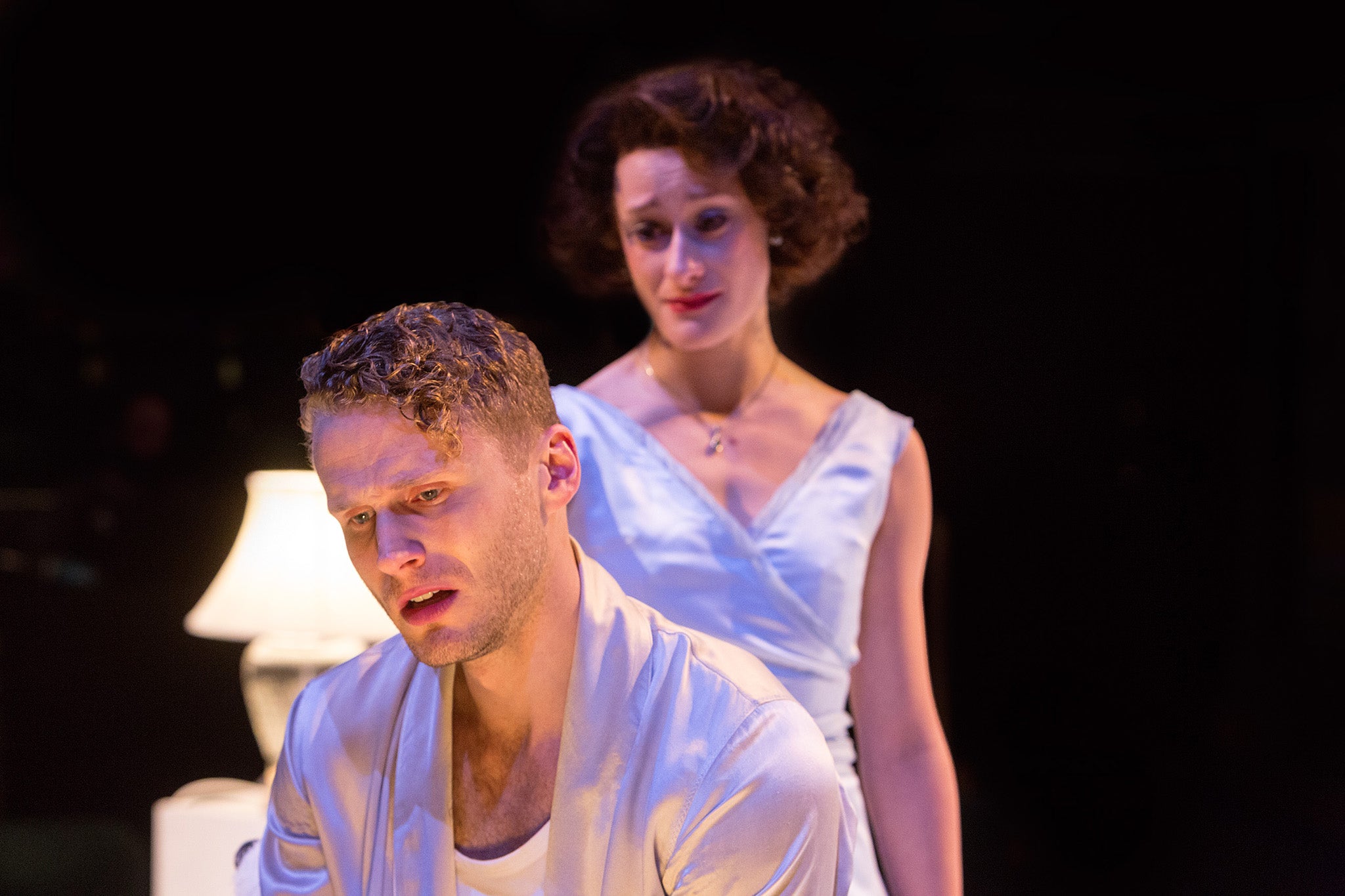Cat on a Hot Tin Roof, Royal Exchange Manchester, review: A compelling production
Something deep in Tennessee Williams' play still touches us today

Your support helps us to tell the story
From reproductive rights to climate change to Big Tech, The Independent is on the ground when the story is developing. Whether it's investigating the financials of Elon Musk's pro-Trump PAC or producing our latest documentary, 'The A Word', which shines a light on the American women fighting for reproductive rights, we know how important it is to parse out the facts from the messaging.
At such a critical moment in US history, we need reporters on the ground. Your donation allows us to keep sending journalists to speak to both sides of the story.
The Independent is trusted by Americans across the entire political spectrum. And unlike many other quality news outlets, we choose not to lock Americans out of our reporting and analysis with paywalls. We believe quality journalism should be available to everyone, paid for by those who can afford it.
Your support makes all the difference.Maggie the Cat's stream of invective fires across the stage like a bullet at the start of Tennessee Williams’ Cat on a Hot Tin Roof. Though the play is set in the 1950s there is something spikily contemporary about the rhapsodic diatribe of the Southern belle in her disdain for her fecund sister-in-law and her brattish offspring.
Yet, for all the easy modernity of her style this is a production rooted in the values of a bygone era when social conformity was still seen as a virtue rather than a vice. Williams's exploration of the vortex of hypocrisy and mendacity behind the conventional social façade was deeply shocking in its day. But something deep in it still touches us today.
James Dacre’s production of the high-humidity sultry classic uses Williams’ original script before it was neatened and sweetened by Broadway and Hollywood. Mariah Gale as Maggie lacks the feline sexuality of Elizabeth Taylor's famous film portrayal but, despite a little uncertainty in her Deep South accent, she artfully yokes together Maggie’s contempt for the material avarice of the society around her with her acceptance that she must inevitably compromise with it.
Hers is one of the three characters of psychological complexity in the play. Charles Aitken as her whisky-soaked husband, Brick, is another. By contrast with Maggie's ceaseless flow of words Brick is a character who speaks largely through stuttering sullen silences. Aitken makes these deeply eloquent, even if the unending flow of high-balls seem to take insufficient toll on his enunciation until he collapses into drunken song. But his inner journey from ageing football star to stumbling sports commentator and then to a deeper recognition that his sense of failure springs from his inability to face up to his latent homosexuality, is finely drawn.
The bulky figure of Big Daddy looms over the play long before he comes on stage. But his appearance, and gruff complexity, are no anti-climax. Daragh O’Malley brings a warmth and sympathy – and attractive humour – to the blustering bully who has built the 28,000 acre cotton plantation, on whose wealth all the characters in the play debilitatingly depend. It is a towering performance in every sense.
All the other characters are caricature foils to these three. Matthew Douglas is nicely repressed as the bumptious calculating elder brother, Gooper. Victoria Elliott excels as his too perfectly coiffured venal vixen of a wife. Kim Criswell, as the bustling cartoon matriarch Big Mama, is duly preposterous as she pretends to defer to her bombastic husband but delicately reveals flickers of something deeper as her heavy make-up cracks.
Williams’ style is often described as poetic realism with its everyday rhythm of rhetorical repetition. But what James Dacre shows is what he actually conjures is the heightened intensity a chef creates as he reduces a sauce in cooking.
The original ending of the play had no scene in which Big Daddy returns to the stage to talk about how he will reconcile himself to facing death. It is the more brutal for that. Its lack of resolution seems more truthful, as does the uncertainty of the sexual reconciliation between Maggie and Brick as the lights fade on this compelling production.
Join our commenting forum
Join thought-provoking conversations, follow other Independent readers and see their replies
0Comments